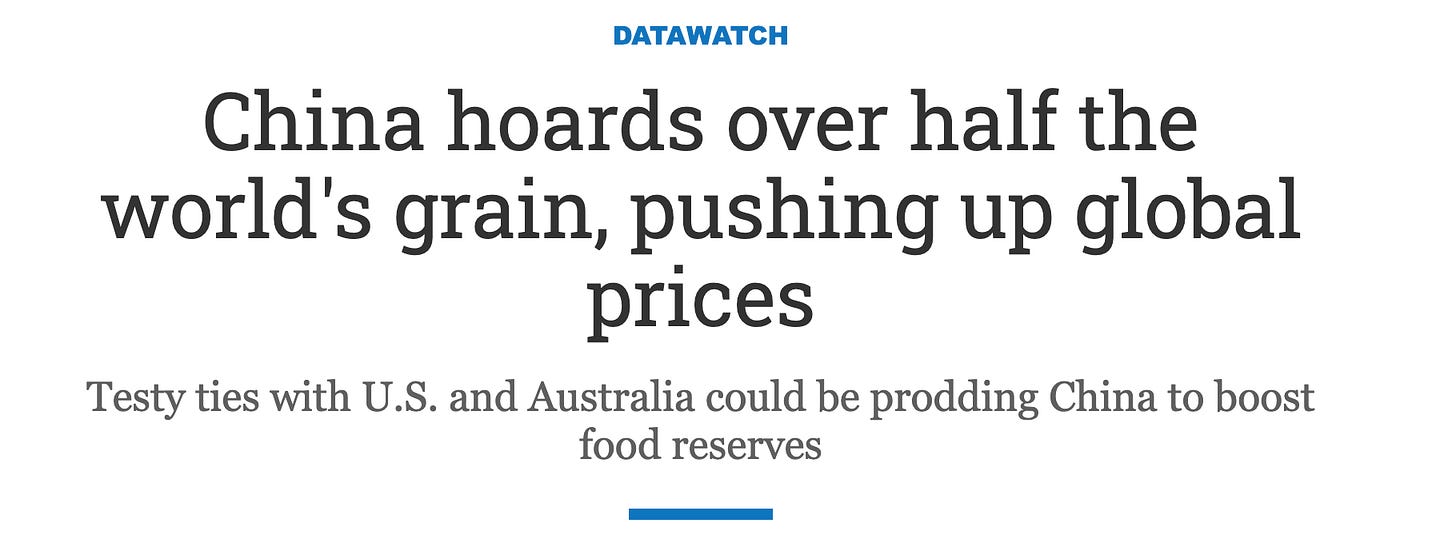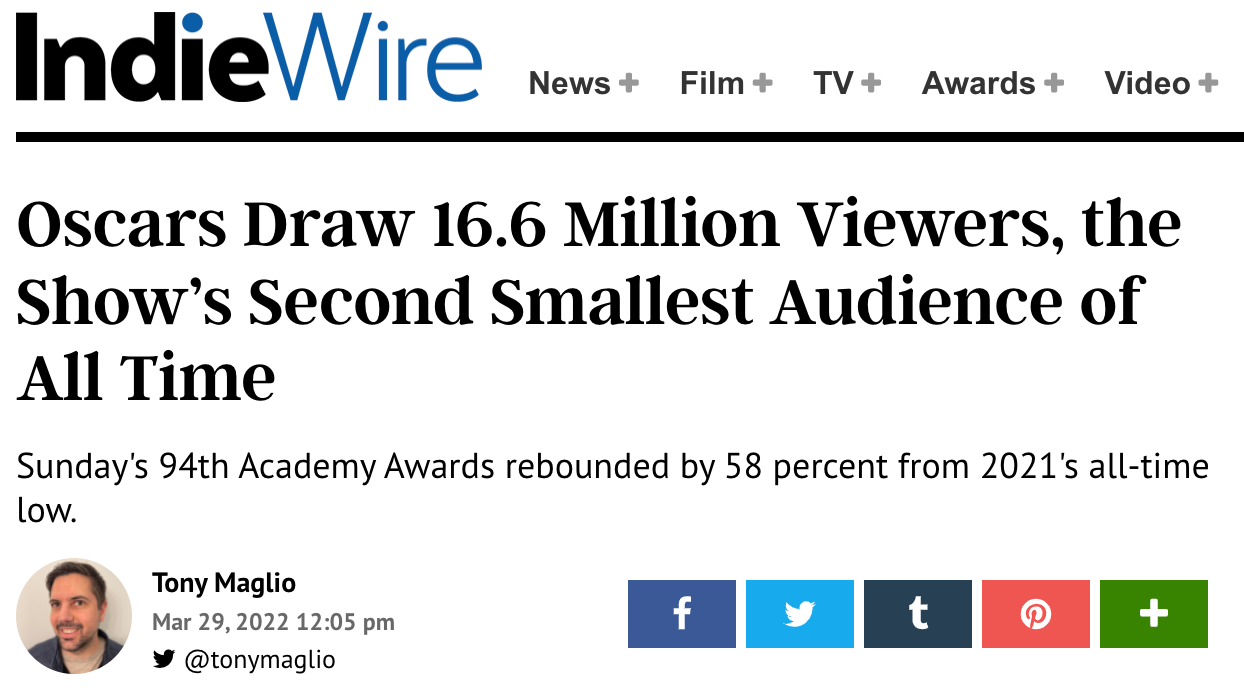Global Food Shortages Imminent
Panem et Circenses - Bread & Circuses Can No Longer Placate The Masses
“..iam pridem, ex quo suffragia nulli / uendimus, effudit curas; nam qui dabat olim / imperium, fasces, legiones, omnia, nunc se / continet atque duas tantum res anxius optat, / panem et circenses/perituros audio multos..” Juvenal’s Tenth Satire (X.77–82)
Forecasting War with Russia and a Global Food Crisis



PART 1 - BREAD
I) The Global Food Crisis is Here Now


Biden: “..with regard to food shortages, yes we did talk about food shortages, and it’s gonna be real. The price of these sanctions is not just imposed upon Russia, it’s imposed upon an awful lot of countries as well, including European countries and our country as well..”
Such that the Executive Director of the UN’s World Food Programme has expressed concern.
“The Black Sea basin is one of the world’s most important areas for grain and agricultural production, and the food security impact of the conflict will likely be felt beyond Ukraine’s border, especially on the poorest of the poor.”
Global food price spikes caused by cascading emergencies are exacerbating a global famine.
This global famine is likely to be “extremely serious”.
Politico reports 21st March 2022:
“France’s Foreign Minister Jean-Yves Drian said the EU must get to grips with the prospect that the war in Ukraine could prompt an ‘extremely serious’ global food crisis. Russia and Ukraine are both gigantic exporters of grain, and half of Africa’s wheat imports come from the two countries, while global food commodity prices have already surged as a result of the conflict. Ukraine’s food exports have all but ceased and its capacity to plant and harvest food this year is threatened by the war.”
This global famine could begin "in the next six months."
Bloomberg reports 21st April 2022:
“Rockefeller Foundation President Rajiv Shah called for debt relief and emergency aid to poorer nations to avert a “massive, immediate food crisis” emerging in poorer nations following Russia’s invasion of Ukraine…in the next six months”
This global food crisis is likely to cause empty shelves and will be “something we haven’t seen” before.
Bloomberg reports 29th March 2022 that Rob Kapito, the co-founder and President of the world’s largest asset management fund BlackRock said:
“BlackRock Inc. President Rob Kapito warned that inflation is having dramatic effects on the economy, with an entire generation now learning what it means to suffer shortages. ‘For the first time, this generation is going to go into a store and not be able to get what they want,’ Kapito said ..’And we have a very entitled generation that has never had to sacrifice..I would put on your seat belts because this is something that we haven’t seen’..”
II) The Causes of Global Famine
A) Sabotage in America
In the US, it appears that one factor causing this food shortage is that food processing facilities may be the targets of sabotage. In the last six months, multiple plants have either burned down, been hit by crashing planes or have otherwise succumbed to incidents. This has caught the attention of Tucker Carlson on Fox News.

“..this is the second time in a week something like this has happened… what’s going on here? Well the story gets weirder, food processing plants all over the country seem to be catching fire… so industrial accidents happen of course, but this is a lot of industrial accidents at food processing facilities, at the same time the president’s warning us about food shortages, they’ve been hit by planes and catching fire what is going on here exactly?..”
Online observers have gathered some recent headlines in this regard.


Local news appears to be catching on.
And even the FBI issued a warning on 20th April 2022 that unknown actors may be sabotaging America’s food supply.
Here is a list of US food related plants that have suffered recent incidents.
And here is a map visualisation of food related plants that have been hit.


B) Lockdown in China:
A second factor behind this global food crisis is China’s ridiculous four week long, zero-Covid total lockdown policy. Note the silence of Western zero-Covid cheerleaders now that their sadistic desire to lock up entire populations has lost much of its sparkle.
CNN reports 18th April 2022:
“Nearly 400 million people across 45 cities in China are under full or partial lockdown as part of China’s strict zero-Covid policy. Together they represent 40%, or $7.2 trillion, of annual gross domestic product for the world’s second-largest economy..Analysts are ringing warning bells, but say investors aren’t properly assessing how serious the global economic fallout might be from these prolonged isolation orders. ‘Global markets may still underestimate the impact, because much attention remains focused on the Russian-Ukraine conflict and US Federal Reserve rate hikes’…”
The Times reports today 25th April 2022:
“London’s stock market dropped this morning after a heavy sell-off in Asia on concerns about rapid rate rises in America and China’s tough Covid-19 restrictions spread to Beijing, adding to worries about slowing global growth…The slowdown was accelerated when parts of Shanghai went into periodic lockdowns in March, before the whole city was shut down. Shanghai’s lockdown has dragged into a fourth week.”
Here is a visualisation map depicting many commercial ships stranded offshore due to Shanghai’s lockdown.
These are giant cargo ships destined to bring consumer goods contained in shipping containers across the Pacific Ocean to all of us. Such backlogs are unlikely to be cleared anytime soon, and are likely to cause our store shelves to become empty in the coming months.
The Chinese Communist Party (CCP) is aware of the looming global crisis and is stockpiling to avert the worst of it. Such stockpiling will cause more global shortages.
Nikkei Asia reports on 21st December 2021:
“According to data from the U.S. Department of Agriculture, China is expected to have 69% of the globe’s maize reserves in the first half of crop year 2022, 60% of its rice and 51% of its wheat.”
C.i) Russia and Ukraine
A third factor in this perfect storm is Russia’s war with Ukraine. In 2020, Russia was the leading global exporter of wheat. Ukraine was the fifth largest. This war is causing a global grain, fertiliser and sunflower oil shortage. All three are essential for global food production and processing.
As Michael Scannell, deputy director-general of the EU’s Directorate-General for Agriculture and Rural Development, explained:
“..’it is not just wheat,’ he said. ‘The situation is similar for a range of other commodities. For barley, for example, these two countries account for 32% of international trade. For corn, it is 17%, and sunflower oil and seeds and meals is over 50%’.”
Zelenski, the comedian-turned globalist president of Ukraine, has warned of famine.
The Times reports 24 April 2022:
”The war in Ukraine is not just in Ukraine or Europe - it’s on other continents. We are one of the world’s leading suppliers of grains - we produce 110 million metric tonnes of which 90 million metric tonnes goes to feed other countries and now they won’t receive [it] and there will be famine.”
This is because Russia and Ukraine supply the bulk of the world’s grain to many Middle-Eastern and African countries.
The highly fertile Ukrainian ‘black soil’ is unique in the world, which is why Ukraine was able to export so much grain.
In addition, most of the world’s fertiliser comes from Russia.

Reuters reports 23 March 2022:
“Sky-high fertilizer prices have farmers worldwide scaling back its use and reducing the amount of land they're planting, fallout from the Ukraine-Russia conflict that has some agricultural industry veterans warning of food shortages.”
And most of the world’s sunflower oil comes from Ukraine:
As ABC News reports 11th March 2022:
“In Italy, supermarkets in Tuscany and Sardinia are limiting sales of sunflower seed oil to two containers per customer, Italian state TV said. Spanish supermarkets also are rationing it..Italian importers of the seed for processing into oil say their supply has already dried up.”
C.ii) The Middle East and North Africa
Which countries will suffer most because of Russia’s war with Ukraine, causing a global grain, fertiliser and sunflower oil shortage in addition to political turmoil?
Those countries most vulnerable to wheat shortages will be:
Egypt, where a total of $3.02bn worth of wheat was imported in 2019, $1.44bn came from Russia, and $773.4m from Ukraine.
Ethiopia, where a total of $458,42m worth of wheat was imported in 2019, $142.01m came from Ukraine and $64.77m from Russia.
Yemen, where a total of $549.89m worth of wheat was imported in 2019, $145.81m came from Russia and $79.8m from Ukraine.
Lebanon, where a total of $148.49m of wheat was imported in 2020, $119.1m came from Ukraine and $22.93m from Russia.
Palestine, where a total of $10.98m worth of wheat was imported in 2020, $5.61m came from Israel (mostly via Ukraine and Russia) and $3.57m direct from Russia.
Also, in 2019, Israel imported a total of $364.48m of wheat, of which $102.55m came from Ukraine and $90.43m from Russia.
Al Jazeera reports 1st March 2022:
“According to the UN’s Comtrade, the main destinations of Ukrainian wheat in 2019 were Egypt ($3.65bn worth), Indonesia ($664.5m), Bangladesh ($418.6m), Turkey ($207.4m) and Tunisia ($195.5m). In 2020, Lebanon imported a total of $148.49m worth of wheat. Of that, $119.1m came from Ukraine and $22.9m from Russia. The effects of the war are likely to be felt on bread prices across countries like Lebanon that rely heavily on wheat from Ukraine.”
“Egyptians consume bread at twice the global average. To support this love of aish, they import more wheat than any other nation in the world. And recently, 85% of Egypt's wheat imports have been coming from Russia and Ukraine..Last year, according to analysis by the U.S. Department of Agriculture, the Mideast imported more than 36 million metric tons of wheat. Most of it came from Russia and Ukraine. And the region's dependence on foreign grain is increasing.”
Foreign Policy reports 2nd March 2022:
“Some of the Middle East and North Africa’s most populous countries—including Egypt, Iraq, Algeria, Tunisia, and Lebanon—are heavily reliant on wheat imports from Ukraine and Russia. As the invasion disrupts global supply, experts fear it will ramp up pressure on food security in these countries, many of which are already suffering from inflationary pressures and the impacts of drought…Countries like Yemen and Lebanon are “are already on their knees in terms of hunger, in terms of food insecurity,” said Arif Husain, the chief economist at the World Food Program. “Many of these populations … are a step away from famine…Rising food prices could also fuel unrest and displacement in the region, fueling fears of new waves of political instability.”
Africa will also suffer unprecedented food insecurity, this is already causing political instability.
The Times reports 24 April 2022:
“The war in Ukraine is complicating efforts to respond, by distracting donors’ attention and causing food prices to soar. Somalia gets 100 per cent of its wheat imports from Russia and Ukraine, and several shipments of grain have been cancelled. The country produces no significant wheat harvest of its own… Meanwhile, hundreds of thousands of people affected by the drought are living in areas cut off by the Islamist al-Shabaab group.. Humanitarian workers say al-Shabaab has not been willing to work with them to allow aid into their territory…”
D) Bird Flu
Believe it or not, there is more. A fourth factor is causing this food shortage. This is because a highly pathogenic bird flu is spreading through American farms and chicken yards. Up to 24 states have been affected in less than two months after a prior outbreak was reported. Nearly 23 million birds have died, mainly due to being put down. This is the worst outbreak of the avian flu in America since 2015. Consumer prices for eggs and poultry are rising rapidly.
NPR reports 6th April 2022:
CBS reports 2nd April 2022:
PART 2 - CIRCUSES
Everywhere you look the circus is in trouble.
Indie Wire reports:
“Sunday’s Oscars drew 16.6 million total viewers on ABC, according to Nielsen’s Live + Same Day national numbers, a significant improvement from 2021’s record low. (But it is still the second-worst Oscars of all time.)”
Forbes reports 4th July 2019:
The Guardian reports 20th April 2022:
“Shares of Netflix lost more than 35% of their value in New York on Wednesday, after the streaming giant announced it had lost more than 200,000 subscribers in the first three months of the year and said it and expects to lose 2 million more over the next quarter..The sharp drop wiped $50bn off Netflix’s value and comes as subscribers rethink their commitment to streaming services.”
“The elimination of the special district, which allows Disney to act as its own government and provide services to parts of Orange and Osceola counties, won’t take effect until June 2023.”
Establishment news streaming sites aren’t having much luck either.
The New York Post reports:
“The shocking announcement that CNN+ would be shutting down operations less than a month after it launched has left out-of-work staffers “aghast and furious” over the company’s handling of what sources inside the network call “an absolute debacle.”
PART 3 - “I HEAR THAT MANY WILL PERISH”
What happens when bread is no longer provided, and circuses can no longer distract?
I) The Fall of Rome
In times such as these, when the perfect storm has gathered, the prevailing empire usually falls.
From The Hill:
“The use of propaganda for diversion to an altered state of reality that is defined by the politicians and the political parties is not new. We even observe this concept of diversion in antiquity.“
By this I do not mean the domestic collapse of the USA. There will likely be grave political instability - its already present - but not total domestic collapse.
I do mean that it is likely the American empire abroad collapses, and the world order is reoriented through chaos. Some of the key countries dependant on Ukrainian grain are also core American client states in the developing world, particularly in the Middle East.
II) Why Do You Think They Are Buying All The Farmland?
As is self-evident from the above, a global food crisis is already here and will become rapidly noticeable in coming months, and circuses can no longer hide this fact.
As discussed in a previous edition of the Radical Dispatch about Biden declaring a New World Order, globalist elites have already prepared for the danger ahead and seek to manoeuvre through these crises to secure their own survival. For them, Ukraine is ground zero for the Great Reset, the introduction of CBDCs and the social credit system. You are mere collateral. Why do you think they are buying up all the farmland? They know.

The UK is no different.
Meanwhile, the rest of us will be expected to eat bugs, “own nothing and be happy”:
III) So What Happens when People are Hungry?
They Revolt.


ABC News reports 11th March 2022:
“The U.N. agency said its simulations suggest that ‘the global number of undernourished people could increase by 8 to 13 million’ in 2022-2023, particularly in Asia, sub-Saharan Africa, the Middle East and North Africa.”
“Rising food prices in the Middle East could also add to simmering anti-government sentiment in the region.”
Investment Monitor reports 25 February 2022:
“From the Flour War in 1775 France (which acted as a prelude to the French Revolution 14 years later), to the Arab Spring in 2011 (where a spike in grain prices caused initial unrest in Egypt), to more recent protests in Lebanon and Sudan, increases in the price of wheat can bring about widespread instability, so the invasion of Ukraine by Russia could have a ripple effect across the world in ways that go beyond military action.”
Note, as observed in a previous edition of the Radical Dispatch, most of the countries affected by this looming global famine are Muslim-majority, globally unaligned countries. I have some experience here. Due to factors outside the scope of this article, these countries’ populations have been primed for revolt over many years.
Once consequence could be rapid upheaval in the the MENA region. A renewed and global Arab, North African and Muslim “spring” to shake off the client states that have failed these populations would not be too surprising to me at this stage. In fact, as assessed in a previous edition of the Radical Dispatch, matters have already come to a head in nuclear Pakistan.
A final point here. We would do well to remember that any phenomenon to emerge out of the fully corrupted status quo in the MENA would be grounded in local values and traditions, fiercely independent, but look nothing like Western democracy - not that there’s any appetite remaining to sell that abroad these days anyway.














































